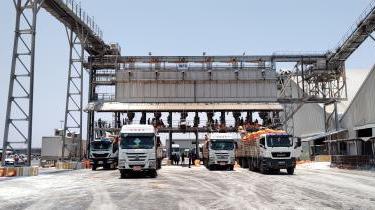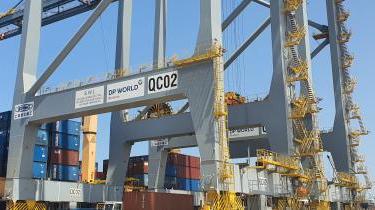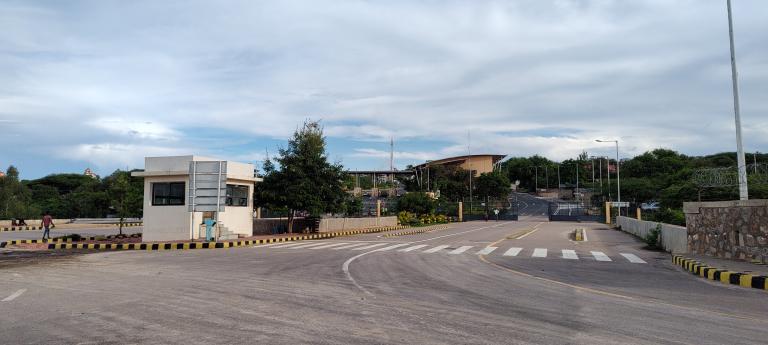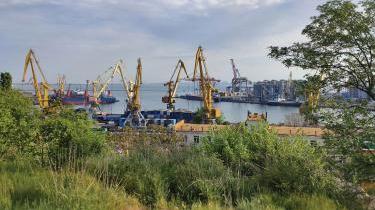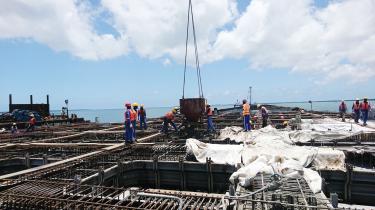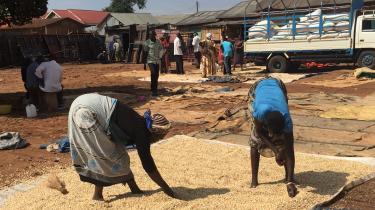Corridors are the backbone on which the African Continental Free Trade Agreement (AfCFTA) will be implemented. In the fragile regional context of the Horn, trade has the potential to drive integration and promote peace and stability. Securing access to ports is a strategic priority for Ethiopia, while improving the efficiency of transport and logistics will be critical to unlock the inclusive growth and job creation potential of key export-oriented manufacturing and agriculture sectors.
Triple Line is supporting the development of corridors across the Horn of Africa region, in the planning and operationalisation of physical transport, logistics and economic infrastructure, as well as non-physical trade facilitation initiatives, including bilateral agreements, tariffs, customs and border management processes.
Berbera Corridor
The development of the Berbera Corridor – from the port of Berbera in Somaliland to Addis Ababa in Ethiopia – is one of the major initiatives in the Horn of Africa region. Since February 2022, Triple Line has been supporting the Berbera Corridor in both Somaliland and Ethiopia. Our work has included an updated diagnostic report comprising: an assessment of physical infrastructure and non-physical trade facilitation components, competitive benchmarking, demand and market assessment, which informed an Action Plan of prioritised interventions to operationalise the corridor as a viable option for Ethiopian transit trade. We were subsequently contracted to support the implementation of the Action Plan, including providing on-call technical advice to the Governments of Ethiopia and Somaliland as they prepare bilateral agreements on transit, transport and trade.
LAPSSET Corridor
The Lamu Port – South Sudan – Ethiopia (LAPSSET) Corridor will connect the port of Lamu in Kenya to Ethiopia and South Sudan. The corridor also comprises the only official border crossing between Kenya and Ethiopia at Moyale and is a key conduit for regional trade, connecting the Horn and East Africa regions. Triple Line recently completed a diagnostic of the Ethiopia and Kenya sections of LAPSSET to identify the opportunities and barriers to trade at all levels, from Ethiopian transit trade via the ports of Lamu and Mombasa, bilateral trade between Ethiopia and Kenya, and small-scale and informal trade in the Moyale cross-border region. We presented a comprehensive Action Plan of interventions from physical infrastructure investments, to institutional arrangements, policy and regulatory reform, and integrated customs and border management processes, which was validated by government and private sector stakeholders from Kenya and Ethiopia at a workshop in Addis Ababa.
Djibouti Corridor
The Djibouti Corridor is Ethiopia’s main gateway to international markets via the ports in Djibouti. At present, it handles around 95% of Ethiopia’s international trade. Significant investments have been made in the ports, as well as in the Ethio-Djibouti railway. Despite these investments, the corridor still faces a number of bottlenecks from poor quality road and border infrastructure to complex and inefficient cross-border trade processes. As part of a study for the Ethiopian Maritima Authority (EMA), Triple Line is recommending actions to streamline and improve cross-border trade processes with Djibouti, as well as incentivise performance and investment in the logistics sector generally.
